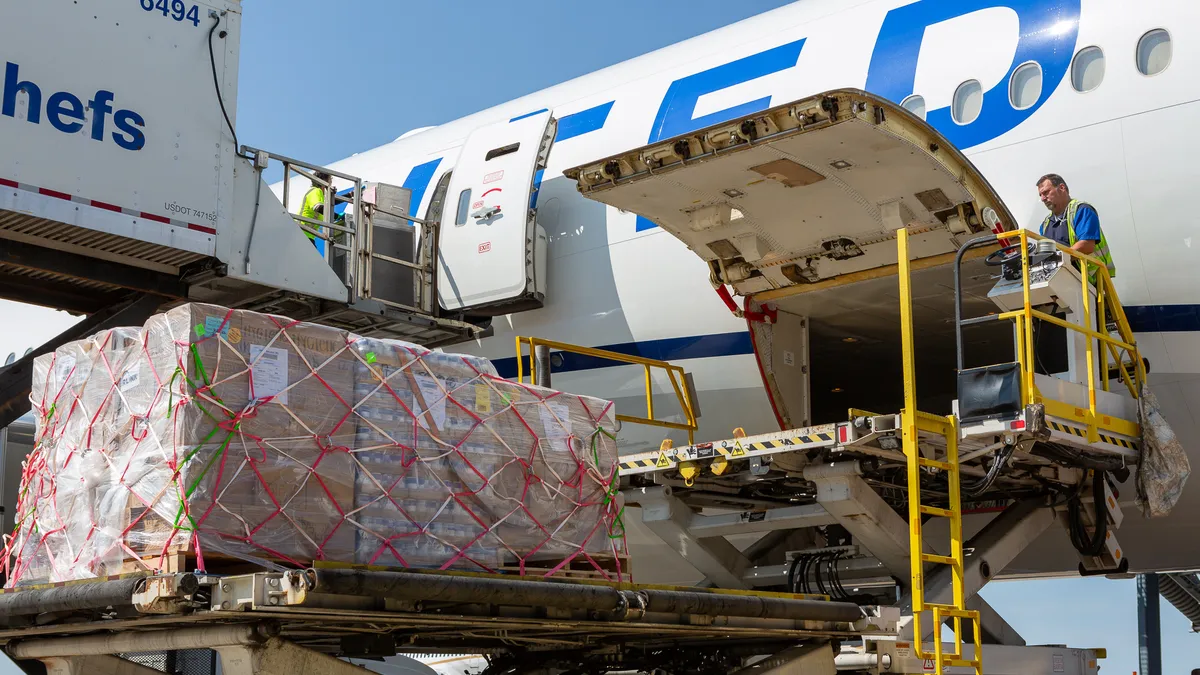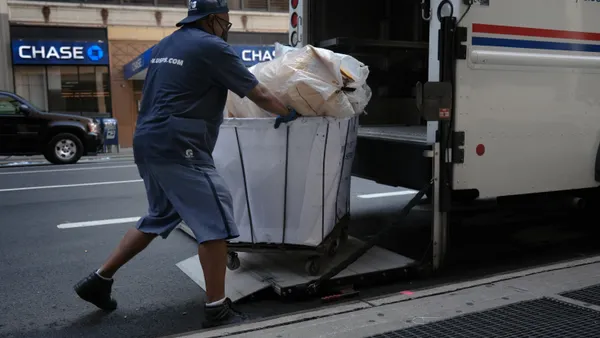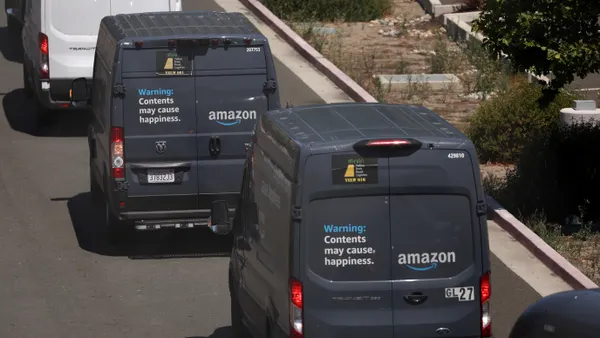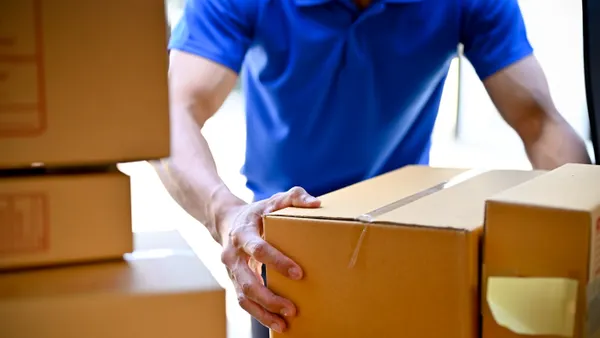Drone delivery is a field in its infancy with plenty of proponents and critics alike. But with the largest names in technology entering the space — most notably Amazon and Alphabet — it might come as a surprise that UPS is, in many ways, leading the way.
UPS has been able to transition its years of experience as a cargo airline into a budding drone operation by working closely with federal regulators on projects focused on healthcare and prescription delivery. Supply Chain Dive is recognizing UPS as the Innovator of the Year for this work, which has culminated in the receipt of a Standard Part 135 certification — the first ever granted.
Many of the pilot projects involving drone delivery began just last year when the Federal Aviation Administration announced the winners of the Unmanned Aircraft Systems Integration Pilot Program (IPP). The "winners" were localities picked by the federal agency to participate in projects that would help determine the future of drone operations and regulations. The North Carolina Department of Transportation was one of these winners and it began working with multiple partners, including UPS, to bring drone delivery to health care.
Ever since, UPS has been working with the WakeMed hospital system in Raleigh, North Carolina.
"They were really interested in really understanding how this new technology could improve patient healthcare outcomes, and how they could deliver better care today," Bala Ganesh, the vice president of the advanced technology group at UPS, told Supply Chain Dive in an interview.
Before it started working with UPS, WakeMed used couriers to carry blood samples from its hospital to its main lab. But UPS and WakeMed were able to cut down delivery time to between five and 10 minutes with a Matternet drone carrying the samples, Ganesh said.
"We quickly learned that there's a lot of use and value to this kind of model," he said.
The next step for UPS was figuring out a way to monetize this service. UPS had to get this step sanctioned by the FAA, but in March it was able to announce the first drone flight to transport a product under a contractual delivery agreement. From then on, UPS was making money on "numerous planned daily revenue flights at the WakeMed Raleigh campus," the company explained in a press release from the announcement.
"Once we did that we felt that we were on a good path to actually starting to move forward the path into commercialization and deployment," Ganesh said. "So to do that we chose to take the strategy of creating a separate entity that could be nimble and flexible."
UPS called the new entity called Flight Forward, which it announced in July, saying it would create drone systems for "revenue-generating deliveries." UPS has since completed more than 1,500 of these revenue-generating flights with WakeMed since March 2019.
Less than three months later, UPS was granted the Part 135 clearance it needed to begin expanding its operation. This clearance gave UPS the ability to not just make money off of its deliveries, but to fly the drones beyond the visual line of sight of the operator. UPS' Flight Forward was the first company to get the "Standard Part 135," which is the highest level of clearance and has "no limits on the size or scope of operations," according to the FAA website.
UPS is not the only company to apply for Part 135 clearance. Amazon and Alphabet's Wing Aviation have also applied. Wing Aviation's application was also approved, but there are multiple levels of Part 135 clearance and Wing received a lower clearance, the "single pilot certificate." The FAA has not yet made a decision on Amazon's application.
UPS' involvement in the FAA IPP and its history of operating a cargo airline helped it to secure this certification, according to Basil Yap, the Unmanned Aircraft Systems (UAS) program manager for the North Carolina Department of Transportation, who has worked with UPS as it piloted drone delivery in the state. "They went above and beyond and pulled in a lot of their UPS expertise from their airline," Yap said.
Since then, UPS has announced plans to expand its work on hospital campuses and is now working with Kaiser Permanente to explore use cases across its network of 39 hospitals. It is also looking into business-to-consumer use cases for drone delivery with CVS, where the two companies will explore delivering prescriptions and retail products to customer's homes.
"This is not a test or anymore," Ganesh said, "this is full-fledged deployment."



 Read more
Read more










